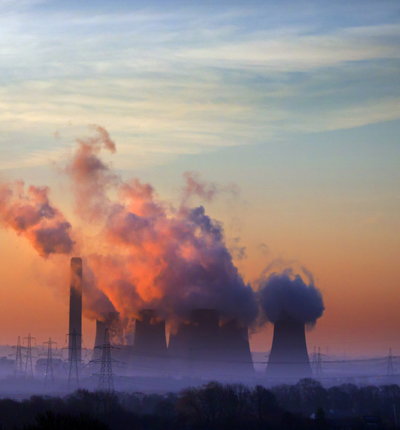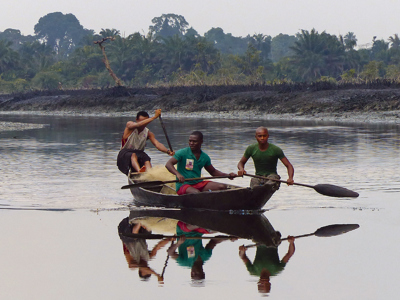
APPG calls for action to tackle climate emergency and global systemic racism
A new report by the All-Party Parliamentary Group on Race and Community has found that people of colour and Indigenous peoples around the world are experiencing the worst effects of a climate and nature emergency.
Posted on 20 May 2025
The report, which was researched and funded by the Runnymede Trust, details a series of recommendations on the relationship between the climate and nature emergency and global systemic racism. The authors examined evidence from a range of experts and affected communities – including lawyers from Leigh Day representing communities on the Niger Delta whose environments have been devastated by decades of severe oil pollution from Shell’s onshore operations in the area.
According to the committee, the report “demonstrates the ways in which people of colour and Indigenous communities across the world are disproportionately facing the very worst effects of the climate and nature emergency”.
The APPG’s inquiry focused on a number of areas including oil and gas extraction and domestic energy inequality, global supply chains and food insecurity, and climate solutions, debt justice, reparations and tax reforms.
A series of recommendations have been put forward to address the climate and nature emergency and its link to global systemic racism. Amongst the proposals are calls for the UK Government to:
- Establish a new mandatory due diligence law to ensure that British companies take proactive steps to prevent human rights abuses within their operations.
- Introduce a demand-side supply chain and financial legislation to ensure that large companies and financial institutions are responsible for any human and environmental rights abuses which might occur in their supply chains.
- Reaffirm its commitment to implementing extended producer responsibility for packaging.
- Make trade data pertaining to waste exportation publicly available and accessible
Leigh Day international department partner Matthew Renshaw, who represents the Bille and Ogale communities taking legal action against oil giant Shell for devastating oil pollution caused by its operations, gave evidence to the APPG’s inquiry. He stated that “it is essential to hold the parent company accountable” and that “one positive development” to enable this and to improve standards would be a mandatory due diligence law in the UK.
Leigh Day’s Walker Syachalinga also provided evidence to the inquiry and discussed the Mau Mau claims where Leigh Day acted on behalf of 5,000 Kenyan nationals who were subjected to torture and other forms of ill-treatment at the hands of the British colonial administration during the Kenya Emergency in the 1950s.
The case was the first time in British history that victims of British colonisation successfully obtained compensation for the wrongs inflicted on them in the past. Walker informed the APPG of the issues surrounding time limits for bringing claims where claimants must identify exceptions to allow them to bring claims out-of-time. Leigh Day’s Alex Wessely discussed the Mau Mau case in more detail in his 2017 blog.
The APPG report also includes a series of recommendations urging the government to take action against domestic inequalities, which include abolishing the two-child limit benefit cap and implementing policy measures to reduce domestic plastic waste.
Matthew Renshaw said:
“The APPG has put forward a series of credible recommendations which would improve corporate accountability and support marginalised communities across the world facing environmental catastrophe. The government should carefully consider and promptly implement these recommendations where possible.”
Walker Syachalinga said:
“This report highlights the clear link between historic events and present-day impacts, including the climate and nature emergency. Leigh Day lawyers are using their expertise of litigating environmental and historic cases to investigate claims arising out of the present-day impact of the enslavement of Africans during the trans-Atlantic slave trade and overcome the obstacles in these claims.”




